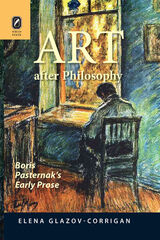
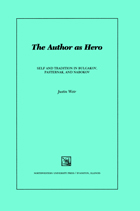

Boris Pasternak has generally been regarded as an artist who was indifferent to the literary and political storms of his time. Lazar Fleishman gives the great writer's life a new perspective. He shows that Pasternak's entire literary career should be regarded as a complex and passionate response to constant changes in Russian cultural and social life.
Drawing on a vast array of sources, Fleishman's chronicle encompasses both the familiar and the little-known aspects of the poet's life and work. He describes the formative role played by Pasternak's father, a prominent Russian painter, and the intellectual endeavors of the young man before his literary debut. He explores the intricate relations of Pasternak to the main movements of literary modernism, including symbolism and futurism.
Particularly informative are the chapters devoted to the postrevolutionary years. Fleishman untangles the poet's contacts with leading political figures (Stalin, Trotsky, Bukharin) and fellow writers (Gorky, Mayakovsky, Tsvetaeva, Akhmatova, Mandelshtam), and examines his changes in fortune during the purges and World War II. He shows how Pasternak was perceived by Western contemporaries and how significant their moral support was for him during the darkest years of Stalin's regime. He provides explanations for the Christian themes in Pasternak's later work, as well as the poet's peculiar view of Jewry. Finally, Fleishman recreates the vicissitudes of the publication of Doctor Zhivago and the ensuing Nobel Prize scandal in 1958. A fascinating description of the writer's career in broad context, this book will be welcomed by everyone interested in Pasternak and in twentieth-century literature.
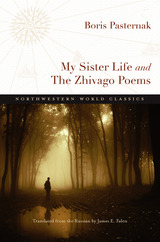
Boris Pasternak is best known in the West for his epic novel Doctor Zhivago, whereas in Russia he is most celebrated as a poet. The two poetry collections offered here in translation are chronological and thematic bookends, and they capture Pasternak’s abiding and powerful vision of life: his sense of its beauty and terror, its precariousness for the individual, and its persistence in time—that vitality of being with which he is on familiar and familial terms.
In the early work My Sister Life, which commemorates the year 1917, Pasternak, then in his late twenties, found his poetic voice. The book would go on to become one of the most influential collections of Russian poetry of the twentieth century. “The Poems of Yury Zhivago” are a part of the poet’s famous novel, Dr. Zhivago, whose title might be rendered in English as “Doctor Life.” These later lyrics are a kind of summing up that reflect, from the perspective of age and approaching death, upon the accumulated experience of a contemplative life amid turbulent and terrifying times.
Falen’s fresh new translations of these poems capture their expression of the beauty and the joy, the terror and the pain, of what it is to be alive . . . and to die.
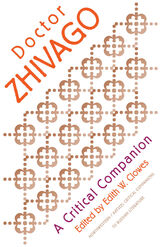
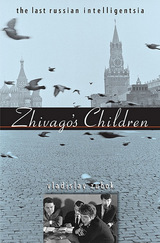
Among the least-chronicled aspects of post–World War II European intellectual and cultural history is the story of the Russian intelligentsia after Stalin. Young Soviet veterans had returned from the heroic struggle to defeat Hitler only to confront the repression of Stalinist society. The world of the intelligentsia exerted an attraction for them, as it did for many recent university graduates. In its moral fervor and its rejection of authoritarianism, this new generation of intellectuals resembled the nineteenth-century Russian intelligentsia that had been crushed by revolutionary terror and Stalinist purges. The last representatives of the Russian intelligentsia, heartened by Khrushchev’s denunciation of Stalinism in 1956, took their inspiration from the visionary aims of their nineteenth-century predecessors and from the revolutionary aspirations of 1917. In pursuing the dream of a civil, democratic socialist society, such idealists contributed to the political disintegration of the communist regime.
Vladislav Zubok turns a compelling subject into a portrait as intimate as it is provocative. The highly educated elite—those who became artists, poets, writers, historians, scientists, and teachers—played a unique role in galvanizing their country to strive toward a greater freedom. Like their contemporaries in the United States, France, and Germany, members of the Russian intelligentsia had a profound effect during the 1960s, in sounding a call for reform, equality, and human rights that echoed beyond their time and place.
Zhivago’s children, the spiritual heirs of Boris Pasternak’s noble doctor, were the last of their kind—an intellectual and artistic community committed to a civic, cultural, and moral mission.
READERS
Browse our collection.
PUBLISHERS
See BiblioVault's publisher services.
STUDENT SERVICES
Files for college accessibility offices.
UChicago Accessibility Resources
home | accessibility | search | about | contact us
BiblioVault ® 2001 - 2024
The University of Chicago Press









